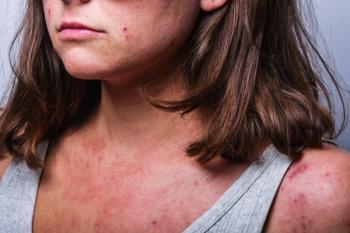
- October 2024
- Volume 40
- Issue 9
Study shows dengue vaccine is safe and effective
Overall, 2 doses of TAK-003 successfully induced the production of neutralizing antibodies against all 4 dengue serotypes in at least 90% of adults, children, and adolescents, regardless of whether they were seronegative or seropositive at baseline.
A new meta-analysis published in the journal Vaccines confirmed that the dengue vaccine TAK-003 is highly effective, reducing disease cases by more than 50%, with lasting effects and an excellent safety profile.1
TAK-003 is the first and only dengue vaccine approved by the European Medicines Agency. Authorized in December 2022, it is now available in Italy and other European countries.
The vaccine is designed as a 2-dose regimen administered 3 months apart for individuals aged 4 years and older, regardless of previous dengue exposure. However, official immunization recommendations across European Union countries are still being developed. What’s more, available evidence on the clinical efficacy and safety of TAK-003 is inconsistent.
To address these gaps, investigators conducted a meta-analysis to evaluate the immunogenicity, efficacy, and safety of TAK-003 after administration of a single dose and the complete 2-dose schedule. By comprehensively assessing the vaccine’s performance, the meta-analysis aimed to provide essential insights for optimizing the use of TAK-003 in dengue prevention.
Investigators examined and cross-referenced data from 19 studies examining the immunogenicity, efficacy, and safety of the live, attenuated, tetravalent dengue vaccine TAK-003 across all age groups. The combined data included over 20,000 participants followed for more than a year after final vaccination dose.
Five studies were conducted in the US, 1 in the United Kingdom, and all others in Asian or Central and South American countries, where dengue fever is endemic.
The main outcome of immunogenicity was seroconversion, and secondary outcomes focused on clinical efficacy and safety measured by serious adverse events (SAEs). All immunogenicity analyses were stratified by dengue’s 4 distinct strains: DENV-1, DENV-2, DENV-3, and DENV-4.
Overall, 2 doses of TAK-003 successfully induced the production of neutralizing antibodies against all 4 dengue serotypes in at least 90% of adults, children, and adolescents, regardless of whether they were seronegative or seropositive at baseline.
A single dose of TAK-003 elicited a high to very high immunogenic response against all 4 serotypes as well. Seroconversion rates exceeded 90% in children and adolescents and remained high at 70% or more in adults. The lowest seroconversion rates (70%-80%) were observed against DENV-3 and DENV-4 in adult participants who were seronegative.
Due to a limited adult study population, all vaccine efficacy results based on intention-to-treat analyses referred to children and adolescents. After the 2-dose regimen was complete, the vaccine significantly reduced the risk of dengue disease caused by DENV-2 and DENV-1 by over 80% and 40%, respectively, in both seropositive and seronegative individuals (P < .001).
However, vaccine effectiveness against DENV-3 and DENV-4 varied based on serological status. While the vaccine significantly protected those who were seropositive (RR = .50 for DENV-3; RR = 0.3 for DENV-4; both P < .001), it offered no protection for seronegative children and adolescents (P > .20).
Further, 1 or 2 doses of TAK-003 demonstrated excellent safety profiles, with a frequency of SAEs that was comparable to that observed among the controls.
Based on their findings, investigators offered suggestions for vaccination guidance.
“The vaccine was able to reduce the overall rate of dengue fever by more than half in both seronegative and seropositive children/adolescents,” they wrote.2 “Therefore, considering the results on safety, immunogenicity and efficacy following the administration of 2 vaccine doses, TAK-003 may certainly represent a central tool for the prevention of dengue fever among children and adolescents in highly endemic countries or within-country areas.”
Although 2 doses of TAK-003 are typically recommended for travelers from nonendemic regions visiting dengue-prone areas, researchers also suggested that a single vaccine dose could be considered for populations in nonendemic countries experiencing high dengue outbreaks.
This suggestion is especially important given the increasing global threat of dengue virus, whose incidence reached a record high in 2024.2 Climate change has exacerbated this surge by expanding the vector of dengue-carrying Aedes mosquitoes. The Americas have been particularly affected, with more than 9.7 million cases reported between January and June of this year alone—double the total amount of all cases reported in 2023.2
“Given the results in terms of safety, immunogenicity, and efficacy, the administration of 2 doses can undoubtedly be a key tool for dengue prevention,” said Maria Elena Flacco, lead study author and director of the school of specialization in public health at the University of Ferrara, Italy, in a news release.3 “The currently available vaccine can therefore be very useful not only for populations in endemic areas but also for travelers from non-risk areas.”
Going forward, investigators called for preferably independent studies to clarify the efficacy of TAK-003 for adults against serotypes 3 and 4 and the potential use of a single vaccine dose in nonendemic countries.
Editor’s note: This article was originally published by our sister publication Drug Topics.
References:
1. Flacco ME, Bianconi A, Cioni G, et al. Immunogenicity, safety and efficacy of the dengue vaccine TAK-003: a meta-analysis. Vaccines. 2024;12(7):770. doi:10.3390/vaccines12070770
2. Increased risk of dengue virus infections in the United States. CDC Health Alert Network. June 25, 2024. Accessed June 26, 2024. https://emergency.cdc.gov/han/2024/han00511.asp
3. The dengue vaccine is effective and safe: Confirmation from the first global meta-analysis. News release. EurekAlert. August 9, 2024. Accessed August 13, 2024. https://www.eurekalert.org/news-releases/1054168
Articles in this issue
over 1 year ago
Cannabis is useful and safe in epilepsyover 1 year ago
Painful passage of vaginal mass after discontinuing OCPover 1 year ago
What to expect during the 2024-2025 flu seasonover 1 year ago
Do increased interventions benefit children with autism?Newsletter
Access practical, evidence-based guidance to support better care for our youngest patients. Join our email list for the latest clinical updates.






